On March 9…
“The actions of the junior Senator from Wisconsin have caused alarm and dismay amongst our allies abroad, and given considerable comfort to our enemies. And whose fault is that? Not really his. He didn’t create this situation of fear; he merely exploited it – and rather successfully. Cassius was right. ‘The fault, dear Brutus, is not in our stars, but in ourselves.'”
~Edward R. Murrow 1954
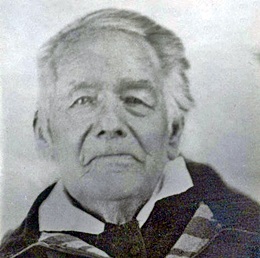
1799 – Congress contracted with Simeon North of Berlin, CT for 500 horse pistols, costing the government $6.50 each. Horse pistols, for those of you born after 1800, were large pistols that were carried by – you guessed it – horsemen.
North – shown above just prior to his death in 1852 at the age of 87 – would become the nation’s first official pistol maker, supplying the U.S. Army and Navy with tens of thousands handguns and rifles over more than 50 years.
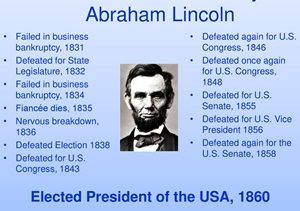
1832 – Abraham Lincoln of New Salem, IL announced his campaign for a seat in the Illinois state legislature.
He finished eighth out of thirteen candidates.
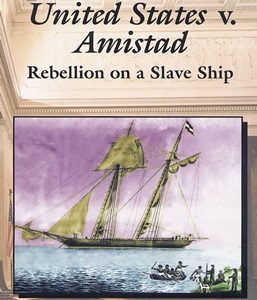
1841 – At the end of a historic case, the U.S. Supreme Court ruled, with only one dissent, that the African slaves who seized control of the Amistad slave ship had been illegally forced into slavery, and thus were free under American law.
In November 1841, with the financial assistance of their abolitionist allies, the Amistad Africans departed America on a voyage back to West Africa.
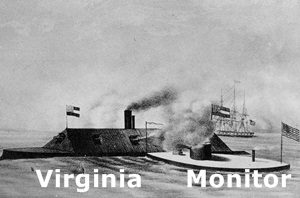
1862 – One of the most famous naval battles in American history occurred when two ironclads, the U.S.S. Monitor and the C.S.S. Virginia fought to a draw off Hampton Roads, Virginia.
The ships pounded each other all morning but their armor plates easily deflected the cannon shots, signaling a new era of steam-powered iron ships.
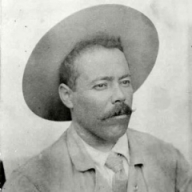
1916 – Several hundred Mexican guerrillas under the command of Francisco “Pancho” Villa crossed the U.S.-Mexican border and attacked the small border town of Columbus, New Mexico.
Seventeen Americans were killed in the raid, and the center of town was burned. It was unclear whether Villa personally participated in the attack, but President Woodrow Wilson ordered General John Pershing to lead 6,000 American troops into Mexico and capture Villa, dead or alive.
For nearly two years, Pershing and his soldiers chased the elusive Villa on horseback, in cars, and with airplanes. The American troops had several bloody skirmishes with the rebels, but Pershing was never able to find and engage Villa.
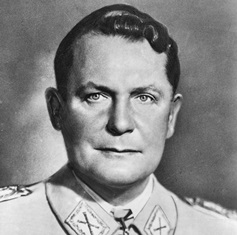
1935 – Less than two weeks after Adolf Hitler secretly authorized the founding of the Reich Luftwaffe as a third German military service to join the Reich army and navy, he responded to an announcement by Britain that they were strengthening the Royal Air Force with a statement of his own.
He introduced Hermann Goering – a World War I veteran who commanded the celebrated air squadron in which the great German ace Manfred Albrecht Freiherr von Richthofen (The Red Baron) served – as Reich Aviation Minister.
The Luftwaffe was to be slowly revealed, step-by-step so as not to alarm foreign governments, and the size and composition of Luftwaffe units were to remain secret, but following Britain’s announcement, Hitler felt compelled to reveal his plans, claiming Germany had a right to defend itself against possible invasion from enemies.
France and Britain, Germany’s next-door neighbors, foolishly accepted that excuse, even though Hitler’s actions violated the Versailles Treaty that ended World War I; a treaty that expressly prohibited military aviation in Germany.
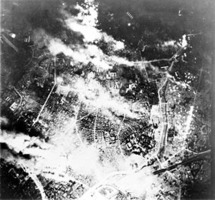
1945 – U.S. warplanes launched a new bombing offensive against Japan, dropping 2,000 tons of incendiary bombs on Tokyo over the course of the next 48 hours.
Three hundred and thirty-four Superfortress B-29 bombers, flying at a mere 500 feet, dropped their loads, creating a giant bonfire fanned by 30-knot winds that spread the flames throughout Tokyo.
Almost 16 square miles in and around the Japanese capital were incinerated, and over 100,000 Japanese civilians were killed in the worst single firestorm in recorded history.
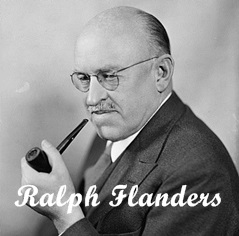
1954 – Senate Republicans leveled criticism at fellow Republican Joseph McCarthy and took action to limit his power.
The criticism and actions were indications that McCarthy’s glory days as the most famous investigator of communist activity in the United States were coming to an end.
Republican Senator Ralph Flanders (Vermont) verbally blasted McCarthy, charging that he was a “one-man party intent on doing his best to shatter that party whose label he wears. The junior Senator from Wisconsin interests us all, no doubt about that, but also he puzzles some of us. To what party does he belong? Is he a hidden satellite of the Democratic Party, to which he is furnishing so much material for quiet mirth?”
In addition to Flanders’ speech, Senate Republicans acted to limit McCarthy’s ability to conduct hearings and to derail his investigation of the U.S. Army.

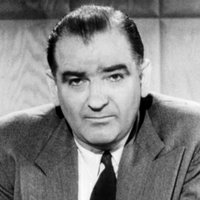
1954 – On his See It Now program, Edward R. Murrow performed one of the most famous acts of journalistic in American television history.
Murrow – who was then perhaps the country’s most highly revered journalist – devoted an entire episode of his program to the words and deeds of Senator Joseph McCarthy, who had already done much to earn his notorious place in history.
Using McCarthy’s own statements, Murrow painted a picture of a man whose recklessness with the truth and ugly attacks on his critics had contributed to a climate of deep fear and repression in American life.
At the end of the show, Murrow turned to the camera and delivered a blistering monologue.

1959 – The first Barbie doll went on display at the American Toy Fair in New York City. The woman behind Barbie was Ruth Handler, who co-founded Mattel, Inc. with her husband in 1945.
After seeing her young daughter ignore her baby dolls to play make-believe with paper dolls of adult women, Handler realized there was an important niche in the market for a toy that allowed little girls to imagine the future.
Barbie’s appearance was modeled on a doll named Lilli. Mattel bought the rights to Lilli and made its own version, which Handler named after her daughter, Barbara.
With its sponsorship of the Mickey Mouse Club, Mattel became the first toy company to broadcast commercials to children.
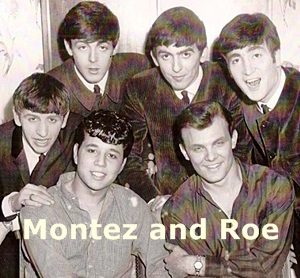
1963 – Kicking off a British tour, Chris Montez and Tommy Roe were co-headliners at The Granada Cinema on Barking Road, East Ham, London.
Even though the Beatles had the #1 song on the British charts, they were the opening act.
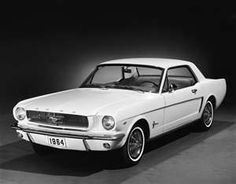
1964 – Production of the Ford Mustang began in Dearborn, Michigan.
The first model went on display a month later at the New York World’s Fair.

1977 – For 39 hours – before the word “terrorism” entered our daily vocabulary – 12 gunmen paralyzed Washington, D.C. in a three-point siege.
The group of Hanafi Muslims held about 150 people hostage in three buildings, and before they surrendered, a policeman and a young reporter were killed and dozens, including City Councilman – and future Mayor – Marion Barry, were injured.
The 12 gunmen had several demands. They wanted the government to hand over a group of men who had been convicted of killing seven relatives – mostly children – of takeover leader Hamaas Abdul Khaalis.
They also demanded that the movie Mohammad, Messenger of God be destroyed because they considered it sacrilegious.
Ambassadors from Iran, Pakistan and Egypt worked with police to persuade the men to give up. All of them were later tried and convicted.
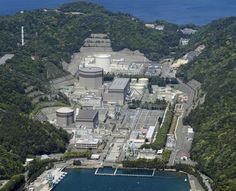
1981 – A nuclear accident at a Japan Atomic Power Company plant in Tsuruga, Japan, occurred when a worker forgot to shut a critical valve, causing a radioactive sludge tank to overflow.
16 tons of waste spilled into Wakasa Bay. As seems all too common with nuclear-power accidents, the officials in charge failed to timely inform the public and nearby residents, endangering them needlessly.
Despite the obvious risk to people eating contaminated fish caught in the bay, Japan’s Atomic Power Commission made no public mention of the accident or spill.
The public was told nothing of the accident until more than a month later, when a newspaper caught wind of and reported the story. By then, seaweed in the area was found to have radioactive levels 10 times greater than normal.
Cobalt-60 levels were 5,000 times higher than previous highs recorded in the area.
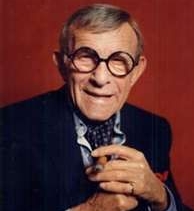
1996 – Comedian/actor George Burns died of cardiac arrest at the age of 100.
He co-starred with his wife on television (The George Burns & Gracie Allen Show), and later in life, enjoyed a successful movie career with Oh God! and The Sunshine Boys, which earned him an Academy Award for Best Supporting Actor.

2007 – Singer Brad Delp committed suicide by carbon monoxide poisoning. He was 55.
He was the lead singer with Boston and his voice carried the group to the top of the charts in the Seventies and Eighties with hits like More Than A Feeling, Peace of Mind, Foreplay/Long Time and Amanda.
Personal tension between Delp and Boston bandleader Tom Scholz had left the singer in a desperate frame of mind. Recent changes in the group. It was, Boston Herald reported, “were the last straw in a dysfunctional professional life.”
The police had been called to the singer’s home in Atkinson, NH, by his fiancée after she had discovered Delp’s car with a dryer hose attached to the car’s exhaust pipe.
A note taped to the house door made the owner’s intentions explicit.
“To whoever finds this I have hopefully committed suicide. Plan B was to asphyxiate myself in my car.”
Inside the house, police found a note directing them to the master bedroom. Outside the bathroom of the bedroom, a faint smell of burnt charcoal hovered in the air.
After breaking down the door, police found two charcoal grills perched among the bathroom fixtures. On the floor beside them lay the body of a man, his head resting on a pillow. A note paper-clipped to the neck of his shirt told them what they needed to know:
“Mr. Brad Delp. Jai une ame salitaire. I am a lonely soul.”
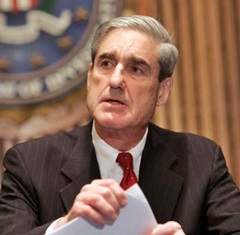
2007 – The U.S. Justice Department released an internal audit that found the Federal Bureau of Investigation had acted illegally in its use of the “Patriot Act” to secretly obtain personal information about U.S. citizens.
Robert S. Mueller III, then the director of the FBI, accepted responsibility for the lapses, and pledged his best efforts to see that they were not repeated.
Compiled by Ray Lemire ©2020 RayLemire.com / Streamingoldies.com. All Rights Reserved.